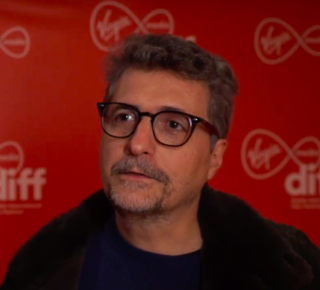A Quote by Philip Taaffe
I have been very influenced by the Japanese concept of space - the preciousness of space, and how one's environment can be shaped to make the most out of limited resources. That's the kind of thing we need to look at again - how momentous the results can be from very subtle changes.
Related Quotes
R&D generally has been a bipartisan thing, because in the IT space, in the medical space, the U.S., the benefits to ourselves and the world and our economy have been very, very clear. I'm hopeful we can make a very strong case there. Energy is actually harder; it takes more time to get a product, but if you do it's a very, very big market and the constraints of doing that in a clean way are more obvious all the time.
In 2009 I went up on the space shuttle. I was in space for 16 days and docked at the space station for 11 days. The entire crew did five space walks, of which I was involved with three of them. When you're doing a space walk, you always have a buddy with you. It's a very dangerous environment when you're doing a space walk.
For me space rock is something that takes you out of yourself and out of your normal realm. And if space happens to be that inner space or outer space it's a very personal thing. I think that mantra is space music. I think that Native American tribal drumming is space music. Anything that allows you to go inward to go outward and to move within a space that is not normal to your reality.
My supporters and family have limited resources, very limited resources; but the FBI has the unlimited resources of the most powerful government in the world today. It's amazing that they haven't successfully had me assassinated since I have been in here. There have been plots uncovered in the past that I know of to have me killed.
We need to be very thoughtful about how we propose to spend the money that NASA does have for space exploration. And we need to be clear that there's the human spaceflight part of NASA, and there's the science space part of NASA, and there's also aeronautics. Those are all very different things that NASA does.
One asana is strong, then again another is very soft and gentle. So you have this modulation from one asana to another, just as you have from one feeling to another. Then they all, of course, make you lighter, give you space. I feel that space is what I get and receive and like to have - space inside which makes more space for openness outside.
One thing that you and I know is language. Another thing that you and I know is how objects behave in perceptual space. We have a whole mass of complex ways of understanding what is the nature of visual space. A proper part of psychology ought to be, and in recent years has been, an effort to try to discover the principles of how we organize visual space. I would say that the same is true of every domain of psychology, of human studies.
The frontier in space, embodied in the space colony, is one in which the interactions between humans and their environment is so much more sensitive and interactive and less tolerant of irresponsibility than it is on the whole surface of the Earth. We are going to learn how to relate to the Earth and our own natural environment here by looking seriously at space colony ecologies.
Once you know the reason why - you've defined your white space of canvas on which you can paint and create a new concept idea. No matter how creative you are - and thus how much creative space you need - there's always some fundamental values and drivers your brand should seek to address - in order to become successful.
I think it modern society as a whole, but definitively in Brazil, spaces are so well divided and there are so many barriers, and so many divisions, so many lines and so many borderlines, basically telling you that you should be here but not here. This is my space and this is your space, and this is expressed very dramatically in architecture, we have a very kind of aggressive, almost medieval concept for architecture, which is basically keeping people out. So you get high walls, fences, and electric fences, and divisions like that.
































